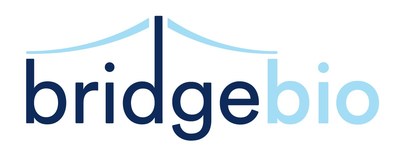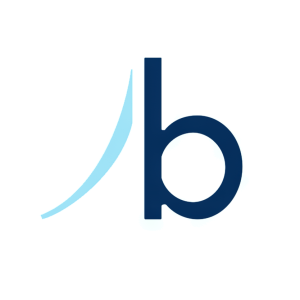BridgeBio Pharma Announces Dosing of First Patient in Phase 1/2 Trial of Investigational Gene Therapy for Canavan Disease
BridgeBio Pharma, Inc. (Nasdaq: BBIO) announced the dosing of the first patient in the CANaspire Phase 1/2 trial for BBP-812, a gene therapy for Canavan disease, which affects approximately 1,000 children in the U.S. and EU. This investigational therapy aims to restore survival and motor function in pediatric patients. Currently, no approved therapies exist for this fatal disease. The trial evaluates safety, tolerability, and pharmacodynamic activity, with results expected in 2022. BBP-812 has received multiple designations from the FDA and EMA, highlighting its potential.
- First patient dosed in CANaspire trial for BBP-812, indicating progress in clinical development.
- BBP-812 is an investigational gene therapy with potential to treat an ultra-rare and fatal disease with no approved therapies.
- Preclinical studies showed BBP-812 can restore survival and normal motor function.
- BBP-812 received Fast Track, Rare Pediatric Drug, and Orphan Drug designations from the FDA.
- The ultimate success of BBP-812 in treating Canavan disease remains uncertain until clinical data is obtained.
- The potential for delays in the clinical trial process due to external factors, such as the COVID-19 pandemic.
Insights
Analyzing...
PALO ALTO, Calif., Nov. 3, 2021 /PRNewswire/ -- BridgeBio Pharma, Inc. (Nasdaq: BBIO), a commercial-stage biopharmaceutical company focused on genetic diseases and cancers, today announced that the first patient has been dosed in CANaspire, its Phase 1/2 clinical trial of BBP-812, an investigational adeno-associated virus (AAV) 9 gene therapy for the treatment of Canavan disease. Canavan disease is an ultra-rare and fatal disease that affects approximately 1,000 children in the United States and European Union. There are currently no approved therapies for the condition.
"Dosing the first patient in our Canavan disease trial is a significant achievement for our gene therapy team and we would not be here without the support of our collaborative partners in the patient, medical and scientific communities," said Eric David, M.D., J.D., CEO at BridgeBio Gene Therapy. "We are committed to the Canavan community and will work to advance this trial and the other programs in our gene therapy portfolio because we believe deeply in the potential of gene therapy to improve and save lives."
"Based on the efficacy and safety data we've observed in our preclinical studies, we are hopeful that our investigational gene therapy can become a meaningful treatment option for children living with Canavan. Right now, these children only have access to supportive care because there are currently no approved therapies to treat this devastating disease," added Adam Shaywitz, M.D., Ph.D., chief medical officer at BridgeBio Gene Therapy.
The Phase 1/2 open-label study is designed to evaluate the safety, tolerability, and pharmacodynamic activity of the company's AAV9 gene therapy, BBP-812, in pediatric patients with Canavan disease. In the initial dose-finding phase of the study, each patient will receive a single intravenous (IV) infusion of BBP-812. The primary outcomes of the study are safety, as well as change from baseline of urine and central nervous system N-acetylaspartate (NAA) levels. Motor function and development will also be assessed. Preclinical proof-of-concept data have shown the approach restores survival and normal motor function.
"Gene therapy is designed to treat diseases at their source, which for Canavan disease would be an extremely beneficial treatment option. Through this trial, we hope to provide evidence that this investigational therapy could represent a promising treatment option for Canavan patients and their families. We are grateful to the first family for participating," said Florian Eichler, M.D., director of the Leukodystrophy Service and principal investigator at Massachusetts General Hospital, the first clinical site open in the CANaspire trial.
BridgeBio's gene therapy was originally developed by Guangping Gao, Ph.D., and Dominic J. Gessler, M.D., Ph.D., at the University of Massachusetts Medical School. Dr. Gao, a pioneer in AAV gene therapy, was also the first person to clone the ASPA gene, which in its mutated form causes Canavan disease. Dr. Gao has been working on developing a cure for Canavan disease for more than 25 years.
"Throughout my career, I've been passionate about connecting with families in the Canavan community to understand how to help them through their journey. After decades of research and work, I'm thrilled that we have dosed the first patient in this trial. I'm hopeful that this represents a meaningful turning point for the Canavan community," said Dr. Gao, co-director of the Li Weibo Institute for Rare Diseases Research, director of the Horae Gene Therapy Center and Viral Vector Core, and professor at University of Massachusetts Medical School.
BridgeBio's investigational AAV9 gene therapy for Canavan disease is one of the Company's 14 programs that are in the clinic or commercial setting for patients living with genetic diseases and genetically-driven cancers. An initial Phase 1/2 data readout for Canavan disease is expected in 2022. For more information about the CANaspire trial, visit TreatCanavan.com or ClinicalTrials.gov (NCT04998396).
About BBP-812
BBP-812 is an investigational AAV9 gene therapy for Canavan disease. Using AAV gene therapy, BridgeBio seeks to deliver functional copies of the ASPA gene throughout the body and into the brain, potentially correcting the disease at its source. Preclinical proof-of-concept results in Canavan disease models have shown the approach restores survival and normal motor function. BBP-812 was granted Fast Track Designation, Rare Pediatric Drug Designation, and Orphan Drug Designation by the U.S. Food and Drug Administration. BBP-812 was also granted Orphan Drug Designation by the European Medicines Agency.
About Canavan Disease
Affecting approximately 1,000 children in the United States and European Union, Canavan disease is an ultra-rare, disabling and fatal disease with no approved therapy. Most children are not able to meet developmental milestones, are unable to crawl, walk, sit or talk, and pass away at a young age. The disease is caused by an inherited mutation of the ASPA gene, which codes for aspartoacylase, a protein that breaks down a compound called N-acetyl-L-aspartic acid (NAA). Deficiency of aspartoacylase activity results in accumulation of NAA, and ultimately results in toxicity to myelin in ways that are not well understood. Myelin insulates the nerves, and without it, neurons are unable to send and receive messages as they should. The current standard of care is limited to supportive therapy.
About BridgeBio Pharma, Inc.
BridgeBio Pharma, Inc. (BridgeBio) is a commercial-stage biopharmaceutical company founded to discover, create, test and deliver transformative medicines to treat patients who suffer from genetic diseases and cancers with clear genetic drivers. BridgeBio's pipeline of over 30 development programs ranges from early science to advanced clinical trials, and its commercial organization is focused on delivering the company's first two approved therapies. BridgeBio was founded in 2015 and its team of experienced drug discoverers, developers, and innovators are committed to applying advances in genetic medicine to help patients as quickly as possible. For more information visit bridgebio.com and follow us on LinkedIn and Twitter.
BridgeBio Pharma, Inc. Forward-Looking Statements
This press release contains forward-looking statements. Statements we make in this press release may include statements that are not historical facts and are considered forward-looking within the meaning of Section 27A of the Securities Act of 1933, as amended (the "Securities Act"), and Section 21E of the Securities Exchange Act of 1934, as amended (the "Exchange Act"), which are usually identified by the use of words such as "anticipates," "believes," "estimates," "expects," "intends," "may," "plans," "projects," "seeks," "should," "will," and variations of such words or similar expressions. We intend these forward-looking statements to be covered by the safe harbor provisions for forward-looking statements contained in Section 27A of the Securities Act and Section 21E of the Exchange Act and are making this statement for purposes of complying with those safe harbor provisions. These forward-looking statements, including statements relating to the timing and success of BridgeBio's Phase 1/2 clinical trial of BBP-812 for the treatment of Canavan disease, expectations, plans and prospects regarding BridgeBio's regulatory approval process for BBP-812, the ability of BBP-812 to treat Canavan disease in humans, and the timing and success of initial top-line Phase 1/2 date of BBP-812, reflect our current views about our plans, intentions, expectations, strategies and prospects, which are based on the information currently available to us and on assumptions we have made. Although we believe that our plans, intentions, expectations, strategies and prospects as reflected in or suggested by those forward-looking statements are reasonable, we can give no assurance that the plans, intentions, expectations or strategies will be attained or achieved. Furthermore, actual results may differ materially from those described in the forward-looking statements and will be affected by a number of risks, uncertainties and assumptions, including, but not limited to, BridgeBio's ability to continue and complete its Phase 1/2 clinical trial of BBP-812 for the treatment of Canavan disease, past data from preclinical studies not being indicative of future data from clinical trials, BridgeBio's ability to advance BBP-812 in clinical development according to its plans, the ability of BBP-812 to treat Canavan disease, the ability of BBP-812 to retain Fast Track Designation, Rare Pediatric Drug Designation, and Orphan Drug Designation from the U.S. Food and Drug Administration and Orphan Drug Designation from the European Medicines Agency, and potential adverse impacts due to the global COVID-19 pandemic such as delays in regulatory review, manufacturing and clinical trials, supply chain interruptions, adverse effects on healthcare systems and disruption of the global economy; as well as those set forth in the Risk Factors section of BridgeBio's most recent Annual Report on Form 10-K filed with the U.S. Securities and Exchange Commission (SEC) and in subsequent SEC filings, which are available on the SEC's website at www.sec.gov. Moreover, BridgeBio operates in a very competitive and rapidly changing environment in which new risks emerge from time to time. Except as required by applicable law, we assume no obligation to update publicly any forward-looking statements, whether as a result of new information, future events or otherwise.
BridgeBio Media Contact:
Grace Rauh
grace.rauh@bridgebio.com
(917) 232-5478
BridgeBio Investor Contact:
Katherine Yau
katherine.yau@bridgebio.com
(516) 554-5989
![]() View original content to download multimedia:https://www.prnewswire.com/news-releases/bridgebio-pharma-announces-dosing-of-first-patient-in-phase-12-trial-of-investigational-gene-therapy-for-canavan-disease-301414761.html
View original content to download multimedia:https://www.prnewswire.com/news-releases/bridgebio-pharma-announces-dosing-of-first-patient-in-phase-12-trial-of-investigational-gene-therapy-for-canavan-disease-301414761.html
SOURCE BridgeBio








